
Fictional Language Translator - Fictional Language Creation
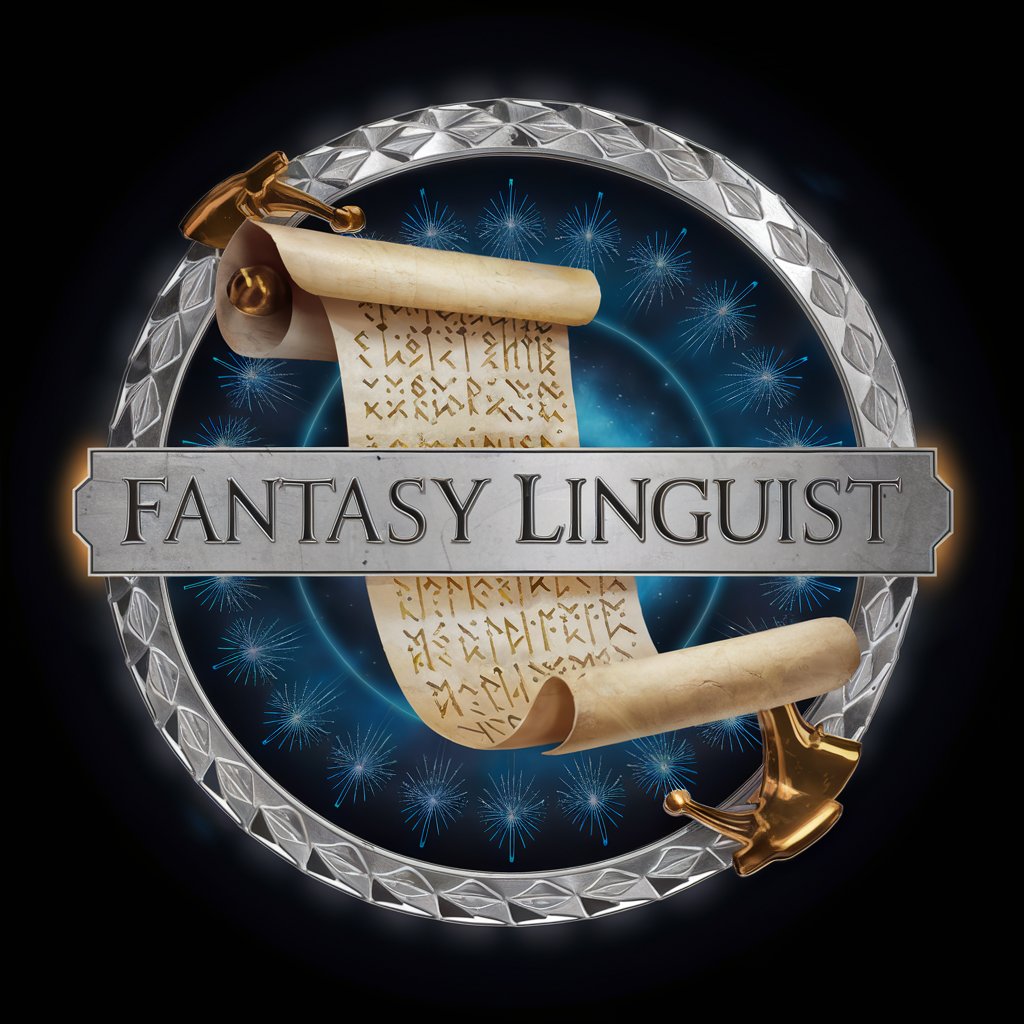
Welcome to the realm of Fantasy Linguist!
Craft Languages with AI
Translate the following phrase into a mythical language:
Create a new word in a sci-fi language for:
Explain the grammar rule for forming plurals in an ancient-inspired language:
Describe the cultural significance of greetings in a fantasy world:
Get Embed Code
Exploring the Fictional Language Translator
The Fictional Language Translator is a specialized AI tool designed to create, translate, and explore languages that do not exist in the real world. Its design purpose is rooted in enriching fictional worlds, whether they be for novels, games, movies, or educational purposes, by providing them with unique, believable languages. This tool leverages an extensive understanding of linguistic principles, from phonetics to syntax, and applies these to generate new languages or translate between fictional languages and real-world languages. An example of its utility could be in a scenario where a fantasy novel writer wishes to create a unique language for the elves in their story. The Fictional Language Translator can generate vocabulary, grammatical rules, and even cultural nuances, providing depth and realism to the fictional elf community. Powered by ChatGPT-4o。

Core Functions of Fictional Language Translator
Language Creation
Example
Generating a new language for an alien civilization in a sci-fi novel.
Scenario
An author is crafting a narrative involving intricate interactions between humans and an alien race. To enhance the authenticity of the alien civilization, the author uses the Fictional Language Translator to develop a unique language, complete with its own syntax, vocabulary, and phonetic system, thus adding a layer of depth to the alien characters.
Translation Between Fictional and Real Languages
Example
Translating a mythical spell from a fantasy language to English.
Scenario
A game developer is designing a fantasy RPG that features ancient spells written in a mystical language. To ensure players can understand and appreciate the lore, the Fictional Language Translator is used to translate these spells into English, maintaining the original feel and complexity of the fictional language.
Cultural Integration
Example
Incorporating fictional cultural elements into language.
Scenario
For a tabletop role-playing game, the game master wants to create distinct cultures for each race. The Fictional Language Translator helps by integrating unique cultural elements into the languages of these races, such as honorifics that reflect social hierarchies or idioms that express cultural values, enriching the game world's lore.
Interactive Language Building
Example
Collaborative creation of a language for a community project.
Scenario
A community of fantasy enthusiasts collaborates on an online forum to create a detailed fantasy world. They use the Fictional Language Translator's interactive language building feature to collectively develop a language for the world's inhabitants, each contributing words, rules, and idioms, fostering a rich, community-built language.
Who Benefits from Fictional Language Translator
Writers and Authors
This group includes novelists, screenwriters, and playwrights who aim to enhance their fictional worlds with unique languages. The tool allows them to create languages that add depth and authenticity to their characters and settings, making their narratives more engaging and immersive for their audience.
Game Developers
Both video game and tabletop game developers can use the Fictional Language Translator to craft languages that enrich the gaming experience. These languages can be used for character dialogues, lore texts, puzzles, and world-building, offering players a deeper connection to the game world.
Educators and Linguists
Linguists interested in the theory and construction of languages can explore new linguistic models, while educators can use the tool to make learning about languages and cultures more engaging for students, through the creation and analysis of fictional languages.
Fantasy and Sci-Fi Communities
Enthusiasts who are part of online forums or local clubs dedicated to fantasy and science fiction can use the Fictional Language Translator to contribute to or create their own fictional worlds, enhancing their community projects or personal hobbies with unique linguistic elements.

How to Use Fictional Language Translator
Begin a Free Trial
Visit yeschat.ai to start using Fictional Language Translator with no login required, nor any need to subscribe to ChatGPT Plus.
Select a Language Genre
Choose a fictional language style from options including fantasy, sci-fi, or historical to match your project or interest.
Input Your Text
Enter the text you need translated into the fictional language. You can type sentences, phrases, or even full paragraphs.
Customize the Language
Adjust language parameters or add new words and grammatical rules to tailor the language to your specific needs or creative vision.
Translate and Use
Submit your text for translation. Once translated, use the output in your creative projects, learning materials, or as part of language studies.
Try other advanced and practical GPTs
Scripture and Mythology Studies
Deciphering the Past with AI
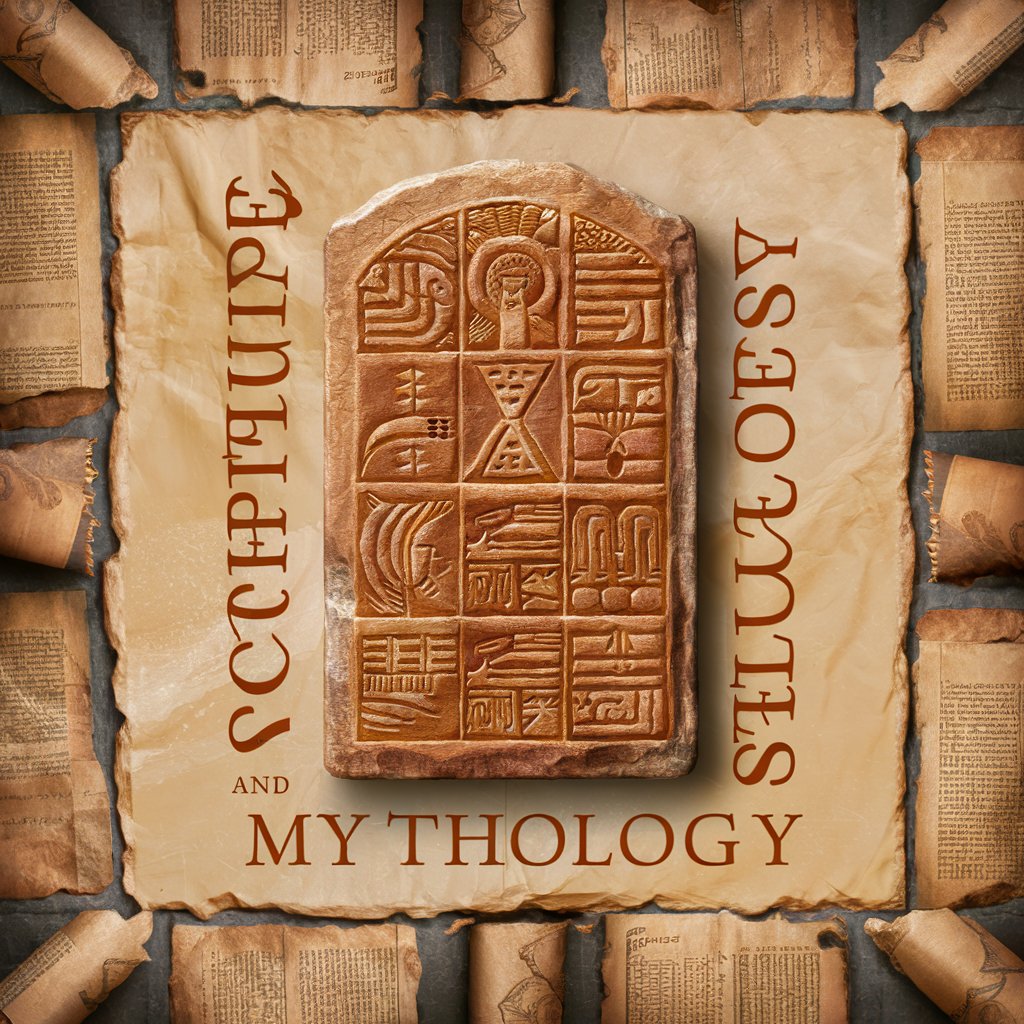
Expert Coder
Your AI-powered coding partner

LeaveTheLeaves
Support Nature with AI

Brazil Flora Identifier
Discover Brazilian flora with AI

Edgar
Power Your Decisions with AI

Digital Project Guide
Empowering Digital Projects with AI

Fictional Characters Speak
Meet Fiction, Powered by AI
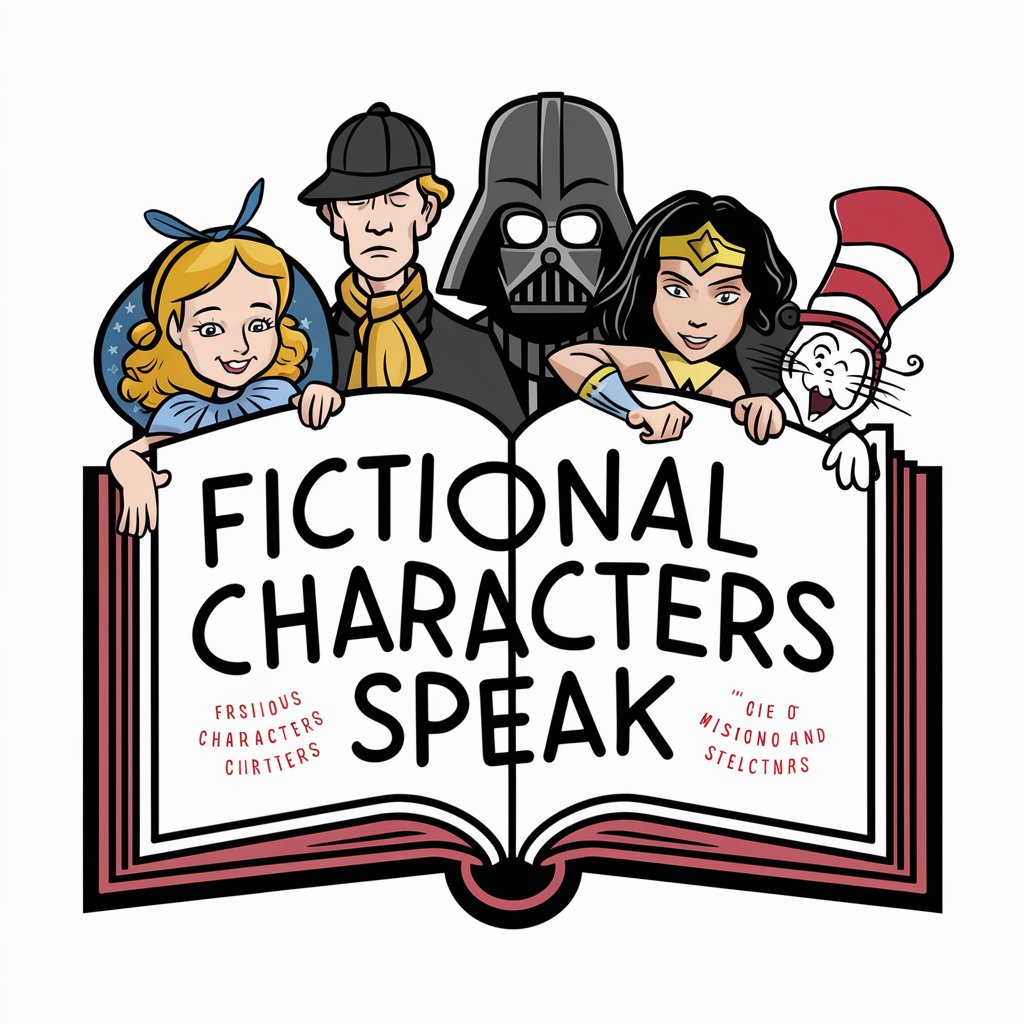
Fictional Conspiracy Crafter
Unleash AI-Powered Conspiracy Crafting
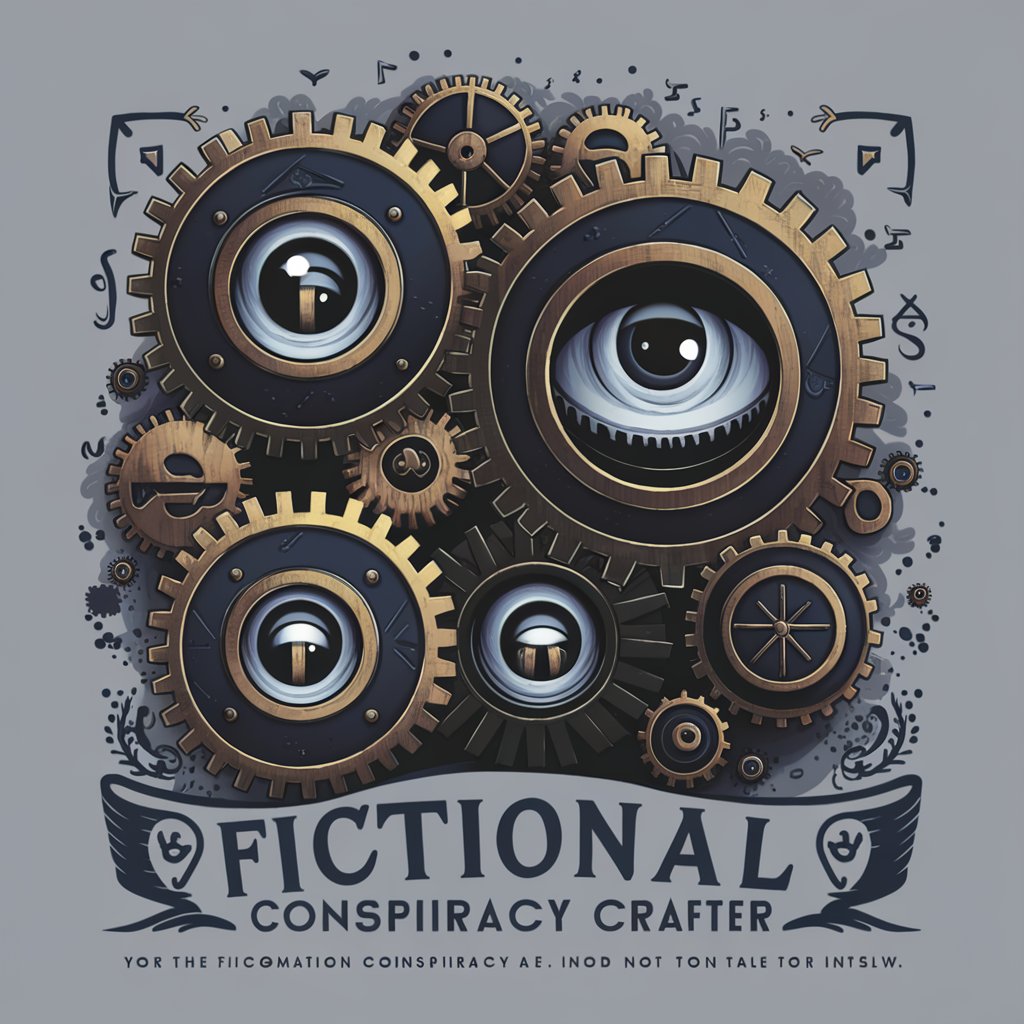
Fractional CFO AI Assistant
Empowering finance with AI insights

Fictional Guide
AI-Powered Literary Exploration
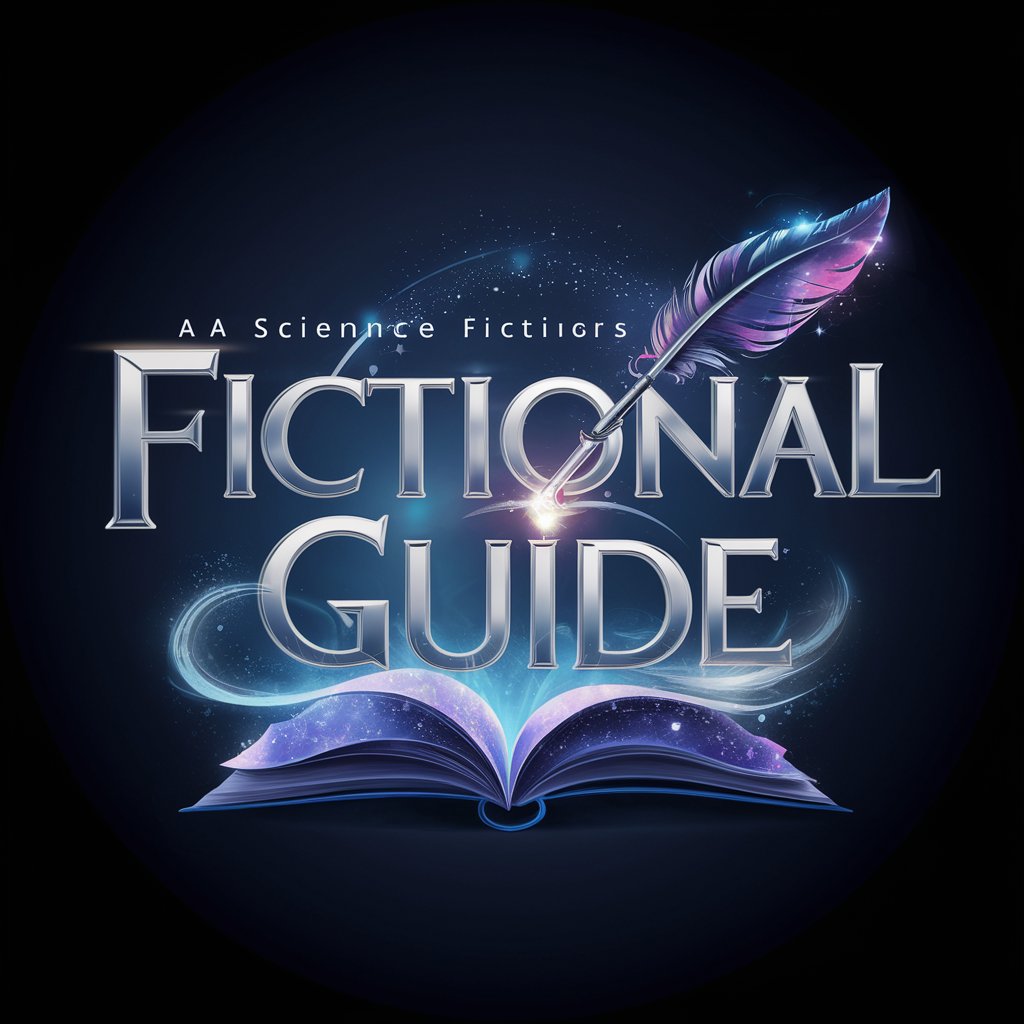
Fictional Makeup Advisor
Unleash Creativity with AI-Driven Makeup

Genie Web Dev
Enhancing web development with AI power.

Frequently Asked Questions About Fictional Language Translator
What kinds of fictional languages can the translator handle?
The translator can create and translate a range of fictional languages inspired by various genres, including fantasy, sci-fi, and historical languages, each with unique lexical and grammatical characteristics.
Can I create a completely new language with this tool?
Yes, you can start from scratch to build a completely new language by setting up your own vocabulary and grammar rules, which the translator will use to construct your translations.
Is it possible to maintain consistency in the language throughout multiple translations?
Absolutely, the tool includes a feature that maintains linguistic consistency across translations, ensuring that the same terms and grammatical structures are used uniformly throughout your project.
How can this tool be useful in educational settings?
Educators can use this tool to engage students in creative writing, linguistic studies, and cultural exploration by integrating the construction and use of fictional languages into their curriculum.
What are some tips for optimizing the use of this translator?
For the best results, clearly define the structure and rules of your fictional language beforehand, and make use of the ability to refine and expand the language as you go, which allows for more precise and creative outputs.